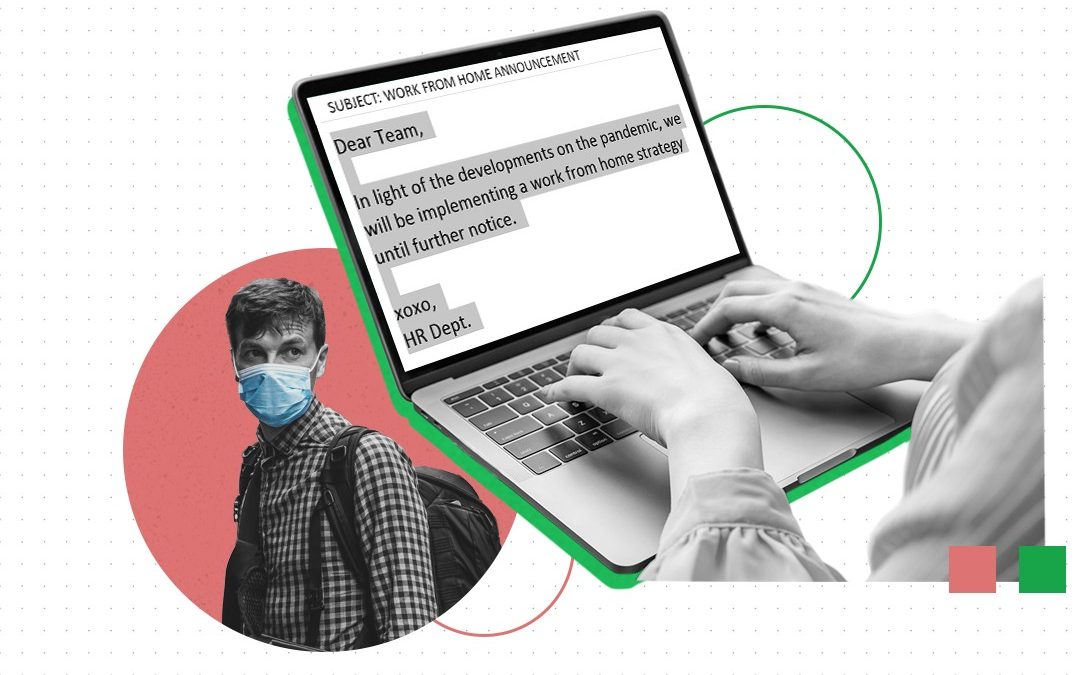
Mel Dominguez
President, CEO, and Founder
With how the COVID-19 pandemic has erupted and changed our lives forever, it is quite comforting to know that we look after the health and welfare of our employees first and foremost.
While we know our heroic frontliners continue to serve the country well by risking their lives in fighting the virus all for the sake of their fellowmen, businesses should find measures in keeping their team members from harm’s way in a pandemic. That is, by keeping them safe in their homes.
Would this mean risking the very existence of your business? If no one can go to our offices or even talk to clients or customers personally, how can a business thrive?
This is why we at our agency emphasize dealing with the crisis even before it actually happened. Considering worst-case scenarios at the onset of reports of the first transmission of COVID-19 in the country, we planned, strategized, and executed a workaround in our operations in the event a total lockdown might happen.
A few days before the Enhanced Community Quarantine was in effect, I met with senior managers on how to implement this new setup, when our employees need not report for work, yet maintain their productivity, integrity and efficiency while dealing with clients and customers professionally out of office.
If that lockdown would happen, our mobility tools, which we’ve made considerable investments in, should become our way of life as an organization.
Hence, when the pandemic worsened, and the ECQ was announced in mid-March, our agency was ready for the new normal in operations—executives, managers, and staff all working from home, all efficiently productive with their deliverables, interfacing with their clients and customers, and assuring high morale and motivation during these difficult times.
We hold daily checkpoints using Microosft Teams, by getting each staff member’s virtual attendance in the morning, and checking on milestones and achievements with a recap in the afternoon. Mancom meetings are also held once a week using Teams. Our daily operations, such as press monitoring, training, client engagement, and team coordination are fully done using remote digital resources.
Microsoft’s Office 365 is very much helpful in keeping things in order. On top of the usual documents we create on Word, spreadsheets on Excel, decks on PowerPoint, we can actually collaborate on them using Sharepoint. While, Outlook is very essential in e-mail communications and calendaring, Teams is the critical collaboration hub in having virtual meetings, video calls, and chats. We can also hold online talks and training sessions on Stream, where our employees can access anytime, anywhere. And of course, there is OneNote to store and organize files and notes.
Depending on client preference, we use the whole myriad of online communications tools for engagement. We hold virtual meetings with clients as many times as possible during the day using such platforms as Viber, WhatsApp, Facebook Messenger, Skype, Zoom, or even Teams to fulfill their daily requirements.
But above all, we all check on our team members, where they are, and how they are doing, just to let them know we are here for them by any means possible. Because in the situation we are all in, what matters most is that we care for and help each other through the crisis.
To realize a sound and stable organization that is resilient to any situation affecting the country with the most innovative tools, your people should come first.
Mel Dominguez
President, CEO, and Founder

